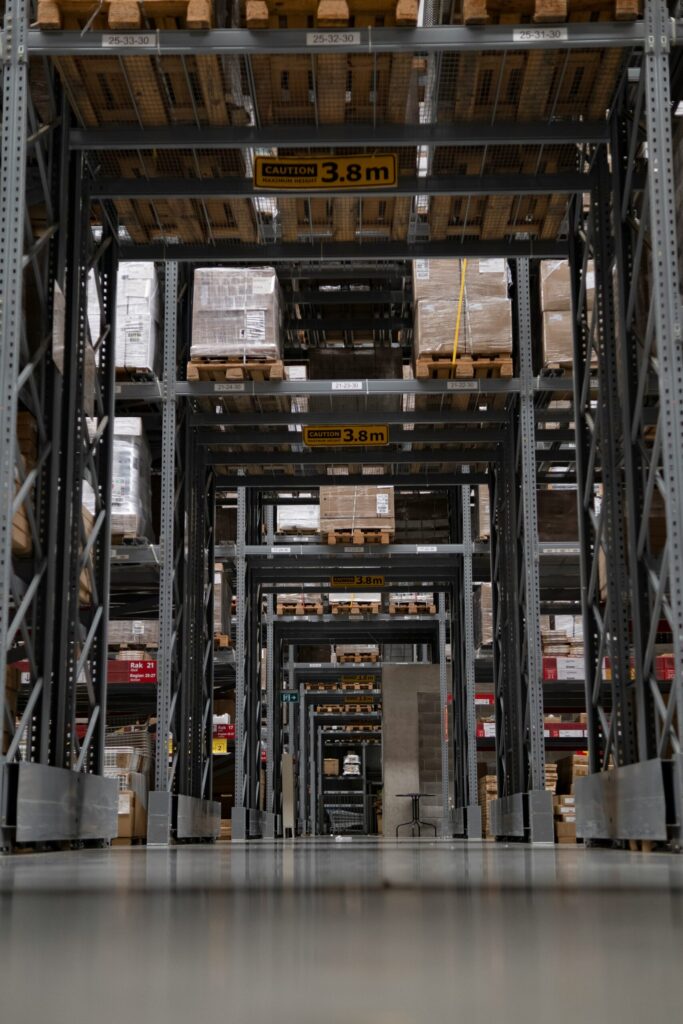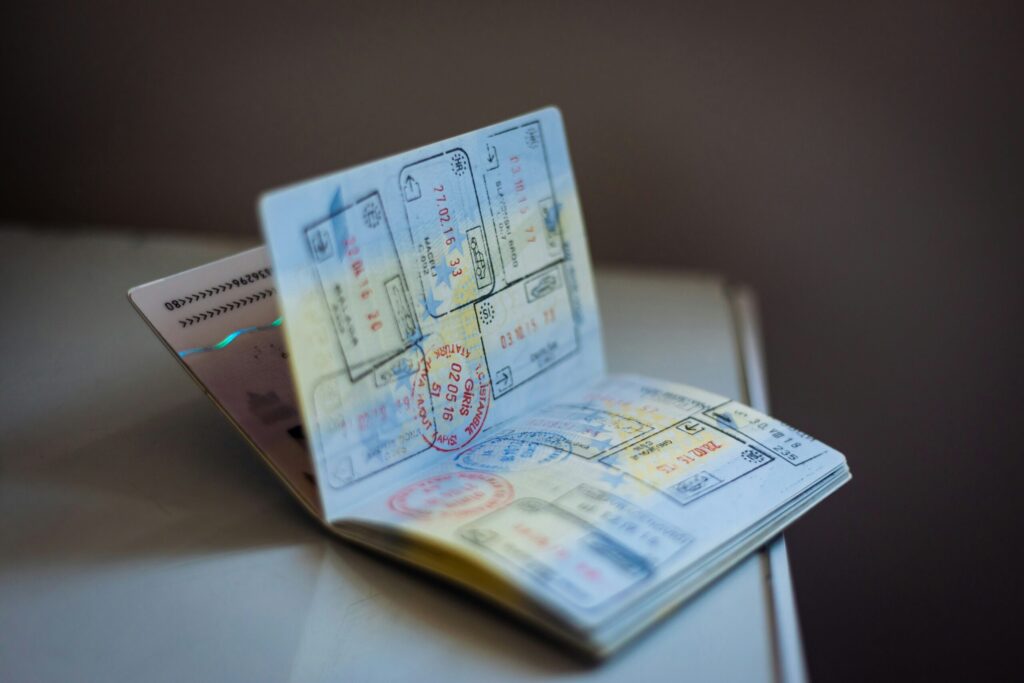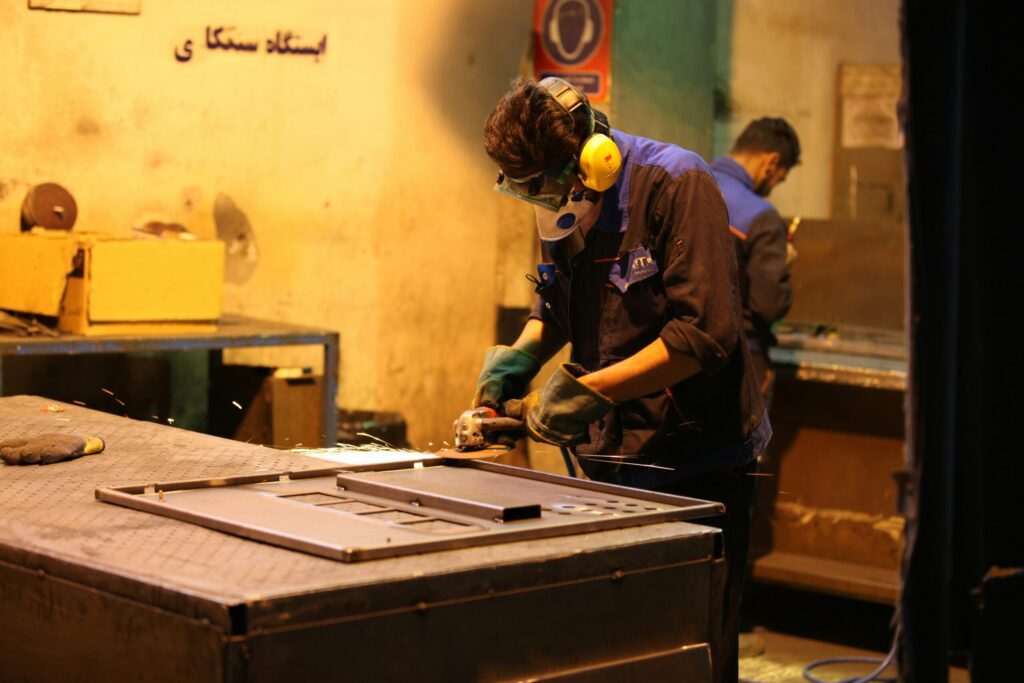 JetBlue careers are great if you consider roles in aviation. JetBlue is a U.S.-based airline that’s tried to position itself differently from legacy carriers and budget airlines alike. Their tagline is “Inspire Humanity,” and they market themselves as the airline that puts the human touch back into flying—more legroom, free snacks, friendly service, that sort of thing.
JetBlue careers are great if you consider roles in aviation. JetBlue is a U.S.-based airline that’s tried to position itself differently from legacy carriers and budget airlines alike. Their tagline is “Inspire Humanity,” and they market themselves as the airline that puts the human touch back into flying—more legroom, free snacks, friendly service, that sort of thing.
Founded in 1999, JetBlue operates primarily out of hubs in New York (JFK), Boston, Fort Lauderdale, and Orlando, with routes throughout the U.S., Caribbean, and Latin America. The company employs thousands of people across the inflight crew, ground operations, maintenance, pilots, and corporate functions.
The airline industry is notoriously volatile, and JetBlue is no exception. When things are good, it’s a solid place to work with decent benefits and travel perks. When things tighten up—fuel costs spike, demand drops, competition intensifies—airlines cut costs fast. In fact, JetBlue reportedly planned new cost cuts in 2025 as breakeven hopes dimmed. That’s the reality of working for an airline. Job security ebbs and flows with the business cycle.
Read Also: How to Prepare For Job Interview When Changing Careers in US
Major Career Paths at JetBlue
JetBlue offers several distinct career tracks, and what you actually do day-to-day varies dramatically depending on which path you choose.
In-flight crew—flight attendants
These are the most visible JetBlue employees. You’re in the cabin ensuring passenger safety, providing service, handling emergencies, and representing the airline’s brand. The job sounds glamorous until you understand what it actually involves: early morning wake-ups for 5 AM flights, late nights, weekends, holidays, standing in the aisle for hours at a time, managing difficult passengers, dealing with medical emergencies at 35,000 feet, and living out of a suitcase.
New flight attendants start on reserve status, which means you’re on-call. You might get called at 2 AM to report for a flight in three hours. You don’t control your schedule—scheduling does. Furthermore, you sit around waiting, and when you get called, you go. This can last months or even years, depending on your base and seniority. Eventually, as you gain seniority, you can bid for specific routes and schedules, but you’ve got to put in time on reserve first.
The work itself is physically demanding. You’re lifting bags, standing for hours, pushing heavy carts, working in confined spaces, and dealing with altitude and time zone changes that wreak havoc on your sleep and health. You’re also the first line of defense for any problem on that aircraft—medical issues, disruptive passengers, equipment malfunctions. The training prepares you, but the reality can still be intense.
Ground operations and airport staff
These include ramp agents, gate agents, customer service agents, and baggage handlers. Ramp agents work outside in all weather—scorching heat, cold, rain, snow—loading and unloading aircraft, marshaling planes, handling baggage. It’s physically demanding work with tight turnaround times. Delays cascade, and you’re under constant pressure to keep things moving.
Gate agents work inside but deal with a different kind of stress. You’re managing passenger expectations, handling rebookings when flights are delayed or canceled, dealing with upset customers, and trying to keep boarding processes efficient. When things go wrong—weather delays, mechanical issues, overbooking—you’re the person passengers take their frustration out on, even though you didn’t cause the problem.
Maintenance and engineering roles
These are for certified aircraft mechanics (A&P licensed), avionics technicians, and engineers who keep the fleet airworthy. This is skilled, technical work requiring specific certifications and training. You’re inspecting aircraft, performing scheduled maintenance, troubleshooting problems, and ensuring safety standards are met. The work can involve overnight shifts since maintenance happens when planes aren’t flying. The pay is better than many airline positions because the skills are specialized and the responsibility is enormous—people’s lives depend on you doing your job correctly.
Pilots—first officers and captains
These are at the top of the airline career ladder in terms of pay and prestige, but getting there requires significant investment. You need thousands of flight hours, specific ratings and certifications, and often years of building experience at regional airlines or other aviation jobs before you’re competitive for a major carrier position. This article won’t focus heavily on pilot careers since that’s a specialized path with its own requirements, but it’s worth knowing that pilot hiring at JetBlue is highly competitive and structured.
Corporate and support functions
They cover everything from finance and HR to marketing, IT, operations planning, network strategy, and crew scheduling. These are office jobs, often at JetBlue’s headquarters, that support the airline’s operations. Crew schedulers, for example, are the ones creating flight attendant and pilot schedules, managing reserve calls, and dealing with operational disruptions. Corporate roles require relevant professional experience and education—you’re not walking in off the street into these positions.
Read Also: Workers’ Compensation Attorneys in the USA
JetBlue Careers: What You’ll Actually Make
Let’s talk compensation, because that’s probably a major factor in whether JetBlue makes sense for you.
 Flight attendants
Flight attendants
Flight attendants are paid based on flight hours, not clock hours, which is crucial to understand. According to recent job listings, JetBlue inflight crewmembers make between $39,000 and $60,000 annually for some locations, with ranges up to $45,000 to $70,000 depending on hours flown and seniority.
Here’s how it actually works. A Reddit flight attendant mentioned starting pay of $26.03 per hour. But you’re only paid for flight hours—the time from when the aircraft door closes until it opens at the destination. You’re not paid for boarding, deplaning, delays on the ground, or time between flights. So if you’re scheduled for an 8-hour duty day but only fly 5 hours, you’re paid for 5 hours.
As you gain seniority, hourly rates increase significantly. According to Travel and Tour World, very senior attendants can make up to $52.41 per hour for their first 70 hours in a month and $57.53 per hour beyond that. Plus, there’s per diem pay for time on layovers to cover meals and incidentals.
Do the math. Starting at $26/hour flying 75 hours per month (which is typical), that’s $1,950 before taxes for that month—about $23,400 annually. That’s rough. You make more as you gain seniority and fly more hours, but early-career flight attendant pay is not generous, especially given the lifestyle demands.
Maintenance and technical roles
They pay better because they require specialized certifications. One Reddit post mentioned a maintenance controller position with a base salary of $111,851 per year. Experienced A&P mechanics make solid wages—often $60,000 to $90,000+, depending on experience and location. These are skilled trades, and the compensation reflects that.
Ground operations roles
These vary but generally fall somewhere between flight attendants and maintenance in terms of pay. Ramp agents and gate agents might make $15 to $20+ per hour, depending on location and experience. It’s hourly work, often with shift differentials for overnight or weekend work.
Corporate roles
This spans a huge range. According to Zippia, some JetBlue positions show hourly rates from $25.70 to $41.80, which translates to roughly $53,000 to $87,000 annually. Senior executives make significantly more—JetBlue’s proxy statements show top officers earning over $600,000 in base salary plus bonuses and equity.
The takeaway? Pay varies wildly by position. Entry-level flight attendant and ground operations roles don’t pay well initially. Technical and corporate roles pay better but require specific skills or experience. Pilot pay is substantial but requires massive upfront investment in training and hours.
Read Also: Jobs that make $3000 a month without a Degree
Benefits and Perks—The Real Draw
Here’s where airline jobs get more attractive: the benefits, especially if you love to travel.
Travel privileges
These are the big perks. JetBlue employees get standby travel benefits on JetBlue flights, and often on partner airlines through agreements. Standby means you fly if there are open seats after all paying passengers are boarded. Reddit users note that JetBlue standby moves pretty quickly on most routes, meaning you can actually use the benefit rather than being stuck in the airport forever.
For people who value travel, this is huge. You can fly to the Caribbean for almost nothing. Take weekend trips. Visit family across the country. The catch is that it’s not guaranteed—you might get bumped if flights are full, especially during holidays or peak travel times. And you’re flying on your days off, which might be limited if you’re working an irregular airline schedule.
Health benefits
The health benefits include medical, dental, vision, and behavioral health coverage. For full-time employees, these benefits are solid and similar to what you’d get at other large companies.
Retirement plans
This includes a 401(k) with company match for many roles. This is standard but important—you’re building long-term financial security while working a job that might not pay amazingly in the early years.
Training
This is provided and paid for by flight attendants. JetBlue has a six-week training program at “JetBlue University” where new flight attendants learn safety procedures, service standards, emergency protocols, and company policies. You’re paid during training, which is good, but you’re also away from home for six weeks, which can be challenging if you have family or other commitments. And if you don’t pass training—which does happen—you’re out. No job, no income, and you’ve just spent six weeks away from home for nothing.
Profit sharing and incentives
This may be available for some roles, depending on company performance, though this varies and isn’t guaranteed.
The benefits package is genuinely good for full-time employees, and the travel perks are unmatched if you love flying. But you need to weigh those benefits against the pay, schedule demands, and lifestyle challenges.
Read Also: American Airlines Careers
JetBlue Careers: The Reality of Working for an Airline
Let’s be honest about what airline work actually involves, because the recruiting materials emphasize the fun parts and downplay the hard parts.
Your schedule will be unpredictable and often terrible.
For flight attendants, especially on reserve, you don’t control when you work. You might work Christmas, Thanksgiving, and New Year’s Eve. You’ll work weekends. You’ll have overnights in random cities. Your body clock will be perpetually confused from early mornings one day and late nights the next. This makes maintaining relationships, hobbies, and any semblance of routine incredibly difficult.
Even when you’re off reserve and can bid for trips, airline scheduling is complex. You might have three days off, but they’re scattered throughout the month. You might work a redeye, have a short layover, then work another full day. The lifestyle isn’t for everyone, and it definitely isn’t compatible with traditional family life or social schedules.
The hiring process is long and multi-layered.
According to Reddit discussions, JetBlue’s hiring process involves applications, interviews, compliance events (group assessment days), background checks, fingerprinting, drug screening, and can take months from initial application to actual start date. One person asked about the timeline, and responses suggested it could be 2-4 months or longer, depending on the position and background check complexity.
Why does it take so long? Airlines are highly regulated, and anyone working for an airline needs to pass extensive background checks and security screenings. The FAA has requirements. The TSA has requirements. The airline has its own standards. All of that takes time to process. If you need a job immediately, airline hiring timelines will frustrate you.
The work is physically and emotionally demanding.
Flight attendants are on their feet for hours, lifting heavy bags into overhead bins, pushing service carts, and working in tight spaces. Ramp agents are outside in all weather doing physically strenuous work. Even gate agents are standing for most of their shifts, dealing with stressed passengers.
Emotionally, you’re constantly managing other people’s stress and frustration. Passengers take out their travel anxiety on airline employees. You’ll deal with rude people, unreasonable demands, and situations where you’re blamed for things beyond your control—weather delays, mechanical issues, company policies you didn’t create.
Job security fluctuates with the industry.
Airlines are extremely sensitive to economic conditions, fuel prices, and demand. When the economy tanks or travel demand drops, airlines cut costs fast—layoffs, reduced hours, hiring freezes. JetBlue’s reported 2025 cost-cutting plans are a reminder that even when things seem stable, they can change quickly. If you need rock-solid employment security, airline work might not provide it.
The culture is real but strained by operational realities.
JetBlue’s “Inspire Humanity” mission isn’t just marketing—many employees genuinely feel the company tries to maintain a people-centric culture. But that culture gets tested when cost pressures mount, staffing gets tight, and operational demands overwhelm good intentions. The gap between the stated values and day-to-day reality can be frustrating for employees who bought into the mission.
Read Also: Highest Paying Jobs Without a Degree in the USA
JetBlue Careers; What Reserve Status Really Means
Since reserve is such a huge part of early flight attendant life, let’s break down what it actually involves.
When you’re on reserve, you’re essentially on-call. You have a “call-in window”—let’s say 12 hours—during which scheduling can contact you and assign you a trip. Once called, you typically need to report to the airport within 2-3 hours (the exact time varies by contract and base).
This means you can’t go far from the airport during your reserve days. You can’t make firm plans. You can’t have a few drinks because you might need to work in two hours. You’re in limbo—not quite working, but not quite free either. Some people describe it as feeling like you’re constantly waiting for your phone to ring.
The duration of reserve status depends on your base, the number of flight attendants at that base, and attrition rates. At some bases, you might be on reserve for 6 months. At others, it could be 2-3 years before you have enough seniority to hold regular lines (set schedules you can bid for).
During reserve, your income can be unpredictable too. If you don’t get called out much, you might only fly the guaranteed minimum hours, which means lower pay. If you get called out frequently, you’ll fly more and make more, but your life becomes even more chaotic.
This is why early-career flight attendant work is so challenging. You’re making the lowest pay, dealing with the worst schedules, and having the least control over your life. It gets better with seniority, but you have to survive those first years.
Read Also: Flight Attendant Jobs in UK- Everything You Need to Know
Career Growth—What’s Actually Possible?
Airline careers do offer advancement paths, but they’re structured and seniority-based, which affects how quickly you can move up.
For flight attendants, the progression looks like: new hire → senior flight attendant (with more seniority) → lead flight attendant or purser (in charge of the cabin crew on a flight) → in-flight supervisor or management. Moving into management takes you off the planes and into more administrative roles, overseeing scheduling, training, or operations.
The challenge is that advancement is heavily seniority-based. You can’t just work harder and get promoted next month. You need to build seniority over the years. Some people love flying and stay as senior flight attendants their entire careers, enjoying better schedules and better pay. Others want to move into management but have to wait for opportunities.
For ground operations, you might move from a ramp agent or gate agent into supervisory roles, then into station management. The path exists but requires time and demonstrated performance.
Maintenance careers can progress from mechanic to lead mechanic to maintenance supervisor or into specialized technical roles. If you’re good and ambitious, you can move into management or engineering positions that pay significantly more.
Corporate roles follow typical business career trajectories. You’re moving up within functional areas—junior analyst to senior analyst to manager to director. It’s more about performance and opportunity than seniority, though politics and timing still matter.
The key thing to understand is that airline careers generally reward longevity. The longer you stay, the more seniority you accumulate, and the better your schedule and pay become. That’s great if you’re in for the long haul. It’s frustrating if you want rapid advancement based on merit.
Read Also: High Demand Jobs in the USA 2025 for Foreigners
JetBlue Careers Pros and Cons—The Honest Assessment
The pros are genuine, especially for certain personalities and life stages.
The travel benefits are unmatched if you value exploration and adventure. You can see the world cheaply. That’s a real quality-of-life perk that few other industries offer.
The work is dynamic. No two days are the same, especially for flight attendants and operations roles. If you hate desk jobs and routine, airline work offers variety.
There are genuine career paths and growth opportunities. You can build a long-term career in aviation if you’re willing to put in the time and navigate the seniority system.
The benefits package for full-time employees is solid—health insurance, retirement match, paid training. These aren’t trivial.
JetBlue’s culture is better than some airlines. Many employees feel the company genuinely tries to value people, even when operational realities make that difficult.
But the cons are significant and affect daily quality of life.
The schedule demands are brutal, especially early in your career. Irregular hours, reserve status, holidays and weekends—your personal life takes a backseat to the job.
Early-career pay is low, particularly for flight attendants. You’re making barely above poverty wages while dealing with significant lifestyle challenges.
The hiring process is long and uncertain. You could wait months only to not get hired, or to get hired and then not pass training.
The work is physically and emotionally demanding. You’re dealing with difficult people, physical strain, and constant pressure.
Job security fluctuates with industry conditions. Cost cuts, layoffs, and instability are part of airline life.
The seniority system means advancement is slow and largely beyond your control. You can’t just work harder and get promoted—you have to wait your turn.
Read Also: Travel Nurse Jobs in Europe 2025
Is JetBlue Careers Right for You?
This depends entirely on what you value and what stage of life you’re in.
JetBlue Careers make sense if:
You’re young, unattached, and love travel. The lifestyle demands are easier when you don’t have a partner, kids, or major commitments outside work.
You’re okay with financial struggle in exchange for experiences. Early flight attendant pay is rough, but if you’re living lean and valuing the travel, it can work.
You’re passionate about aviation. Some people genuinely love the airline industry and are willing to accept the downsides to work in it.
You’re looking for a specific technical career in maintenance or engineering and have the required certifications. These roles pay decently and offer stable, skilled work.
You want corporate roles in the travel or airline industry and have relevant professional experience. The corporate positions are legitimate business jobs with industry-specific context.
JetBlue Careers probably isn’t the best fit if:
You need predictable schedules and regular hours. Airline work, especially flight attendant and operations roles, is inherently irregular.
You need a strong income immediately. Early-career airline pay is modest at best, and it takes years to build up to comfortable wages.
You have significant family obligations or commitments that require you to be present and available. The schedule makes that nearly impossible.
You want rapid career advancement based on merit. The seniority system means you’re waiting your turn regardless of how good you are.
You need rock-solid job security. Airlines are volatile, and your employment security fluctuates with industry conditions.
You’re not physically robust. The work is demanding, and if you have health issues or physical limitations, it can be really challenging.
Read Also: Universal Technical Institute in the USA
JetBlue Careers: How to Actually Apply and Get Hired
If you’ve decided to pursue JetBlue careers, here’s how to navigate the process effectively.
Visit the official JetBlue careers website
Browse by category—inflight, ground ops, maintenance, corporate. Job postings come and go, and some positions (especially flight attendants) open during specific recruitment windows. If you don’t see what you want, keep checking back.
Tailor your application materials to aviation.
Emphasize customer service experience, ability to work under pressure, flexibility, teamwork, and any relevant technical skills or certifications. Airlines want people who can handle stress, work with diverse teams, and represent the company well.
JetBlue Careers: Prepare for a multi-step process.
For flight attendant roles, this typically includes an online application, video interview, in-person group assessment day (compliance day), conditional job offer, then background checks, drug screening, fingerprinting, and finally training. The whole process can take 2-4 months or longer.
For technical roles, expect interviews focused on your certifications, technical knowledge, and experience. They’ll verify your A&P license or other credentials.
For corporate roles, expect more traditional interview processes—phone screens, panel interviews, skills assessments depending on the position.
Be patient with the timeline.
The background checks and security screenings take time. Don’t assume silence means rejection—the process just moves slowly. Follow up politely if you haven’t heard anything after a few weeks, but understand that delays are normal.
Prepare for training seriously.
If you get a conditional offer for flight attendant positions, you’ll attend the six-week training program. It’s paid, but it’s also intense. You’re learning safety procedures, emergency protocols, service standards, company policies, and FAA regulations. There are tests. People do fail. Take it seriously from day one.
Use your network.
Connect with current JetBlue employees on LinkedIn or through aviation career communities. Learn from their experiences. Some positions offer employee referrals, which can help your application get noticed.
Be honest with yourself about fit.
Before you invest months in the application and training process, really think about whether the lifestyle works for you. Talk to current flight attendants or airline employees. Shadow a day if possible. Understand what you’re signing up for.
Read Also: Flight Attendant Jobs in the USA
JetBlue Careers: Making the Decision
Working at JetBlue careers or any airline is a specific lifestyle choice as much as it is a career choice.
For some people at certain life stages, it’s fantastic. You’re young, you love travel, you’re comfortable with chaos and unpredictability, and you’re willing to trade financial stability for experiences. The travel benefits alone can be worth the challenges if that’s what you value.
For others, the downsides outweigh the benefits. The pay is too low, the schedule is too disruptive, the lack of control over your life is too frustrating, and the job security is too uncertain.
Most people who succeed in airline careers long-term are those who genuinely love aviation and travel. They’ve made peace with the lifestyle demands. They’ve learned to work the seniority system. They value the perks and accept the trade-offs.
If you’re considering JetBlue, be brutally honest about your priorities. Also, if money, stability, and predictable schedules matter most to you, this isn’t your path. If travel, adventure, and being part of the aviation world matter more, it might be worth the challenges.
Also, consider this as a temporary chapter rather than a lifelong commitment. Many people work for airlines for a few years while they’re young, enjoy the travel,and then transition to other careers when their life circumstances change. That’s totally valid. You don’t have to commit to 30 years—you can take what the job offers for a few years and move on when it stops working for you.
The airline industry isn’t going anywhere, and JetBlue is a legitimate carrier with real career opportunities. But it’s not for everyone, and that’s okay. Think carefully, research thoroughly, and make the decision that fits your life, not just the idea of what sounds exciting.
 Flight attendants
Flight attendants




